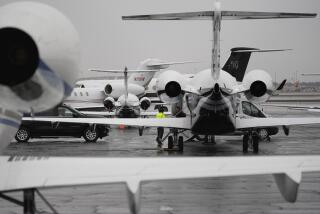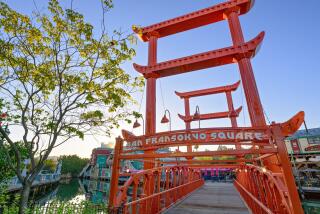More music, media on Song airline
Delta’s low-cost carrier Song fired off a few more volleys in the airborne entertainment war this month.
The airline said it had finished installing free MP3 programming on all its jets, allowing fliers to compile playlists of up to 32 songs from a selection of more than 1,600 in various genres.
For $5 per film, passengers also can select from 10 movies to view on their seatback TVs. For $5 more, they get unlimited play on 11 video games, such as Texas Hold’em and Klondike Solitaire.
Song’s interactive trivia contest, in which passengers can play against one another, continues to be free, as is its 24-channel satellite TV.
Washington Monument to reopen
The Washington Monument in Washington, D.C., closed since Sept. 7, will reopen Friday after installation of a barrier system, costing nearly $15 million, designed to discourage car-bomb attacks, the National Park Service said.
Bill Line, spokesman for the parks’ National Capital Region, described the 30-inch-high barriers as “decoratively, tastefully done,” with brick facades on walls reinforced with concrete.
Most of the 55-acre grounds surrounding the monument will be closed until the end of June, he added. A walkway will be kept open to provide access, and there will be a temporary ticket kiosk on the 15th Street side.
The kiosk will distribute free timed, same-day tickets. You can also reserve advance tickets, which are free but carry fees of $1.50 per ticket plus 50 cents per order, by calling (800) 967-2283 or visiting reservations.nps.gov.
U.S. parks see a rise in visitors
America’s national parks got about 4% more visitors last year, reversing a downward trend since the terrorist attacks of Sept. 11, 2001, the National Park Service said. But park tourism is still below 2000, the year before the attacks.More than 276 million people visited U.S. national parks in 2004, compared with more than 266 million in 2003 and 286 million in 2000.
Among the biggest gainers in 2004 were the Santa Monica Mountains National Recreation Area in California (up 17%) and Shenandoah National Park in Virginia (up 8%).
California’s Yosemite National Park lost about 100,000 visitors.
Most people who stopped coming after the terrorist attacks were from abroad, said park service spokesman David Barna in Washington, D.C. That especially affected remote but popular parks such as Yosemite and Arizona’s Grand Canyon.
By contrast, “many parks near urban areas and cultural sites were dramatically up [in visitors] because people were driving there and because of a sense of patriotism,” Barna said.
— Compiled by Jane Engle
More to Read
Sign up for The Wild
We’ll help you find the best places to hike, bike and run, as well as the perfect silent spots for meditation and yoga.
You may occasionally receive promotional content from the Los Angeles Times.






